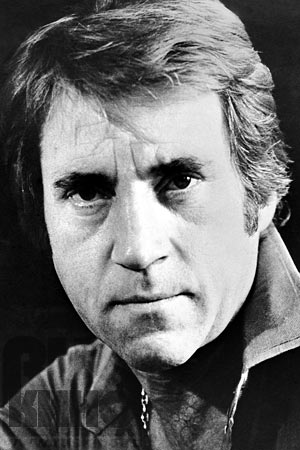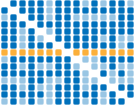Viszockij, Vlagyimir Szemjonovics oldala, Angol életrajz
Életrajz
Vladimir Vysotsky was born in Moscow, Russia, USSR. His father was an army officer and his mother a German language translator. His parents got divorced not long after his birth, and he was brought up by his stepmother of Armenian descent, "aunt" Yevgenia. For two years during his childhood he lived on the military base at Eberswalde in Germany's Soviet occupied zone (later GDR). On return, he went to school at Moscow.During 1955/1956, he attended the Moscow Institute of Civil Engineering but only stayed for the first half of the academic year and left the institute after having passed the first examination. In 1959 he decided to pursue his dream of acting and started working at the Aleksandr Pushkin Theatre as an actor of small roles.
He met his second wife, Ludmilla Abramova, in 1961. They married in 1965 and had two sons, Arkady and Nikita.
In 1964, on invitation of director Yuri Lyubimov, who was to become his paternal friend, he joined the staff of the popular Moscow Theatre of Drama and Comedy on the Taganka. He is remembered for playing the leading role in Shakespeare's Hamlet and Brecht's The Life of Galileo. — He also appeared in several movies.
Living in divorce, he fell in love with French actress Marina Vlady, who worked for Mosfilm at that time. "At age thirty, our lives rich with various experiences, several wives and husbands, five children between us...", they got married in 1969. As a side effect, this gave him the ability to travel abroad (outside the Eastern bloc countries) as well as some immunity to prosecution by the government. Working at different locations most of the time, their by no means easy marriage relied heavily on the exchange of letters, telegrams and trunk calls.
Vysotsky died in Moscow of heart failure at the age of 42, his health having been deteriorated by alcoholism and morphine (and other opiate) addiction. His body was laid out at the Taganka theatre, where the funeral service was held. He was later buried at the Vagankovskoye Cemetery, Moscow. Hundreds of Moscow citizens left the stadiums (as it was the time of the Olympics) to attend the funeral. In the years to come, his flower-adorned grave site became a place of pilgrimage: not the slab-supported meteorite his widow had suggested, but a golden statue, on which his parents decided in an uncompromising way, and which would have suited much better a Hero of the Soviet Union, someone he never was nor wanted to be.
Shortly after his death, nearly all Russian bards wrote songs and poems about his life and death. The best known ones are Yuri Vizbor's "Letter to Vysotsky" (1982) and Bulat Okudjava's "About Volodya Vysotsky" (1980).
Years later, urged by her friend Simone Signoret, Marina Vlady wrote an autobiography, portraying her husband and their common years. This book finally allowed Vysotsky's fans to understand the man behind their favourite songs.
The asteroid 2374 Vladvysotskij was named after him. It was discovered by Lyudmila Zhuravleva of the observatory at Nauchnij, Crimea.




